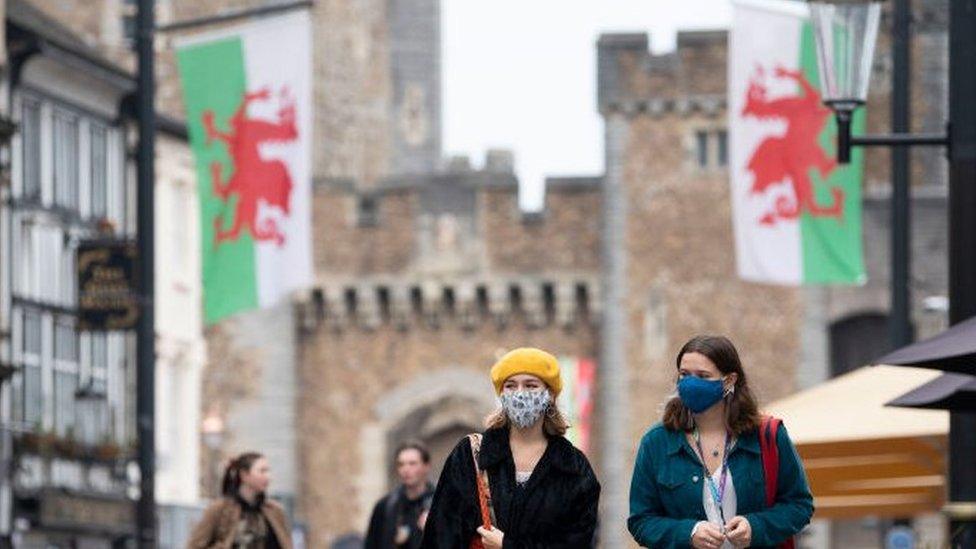Covid: Third wave of cases is inevitable, says top doctor
- Published
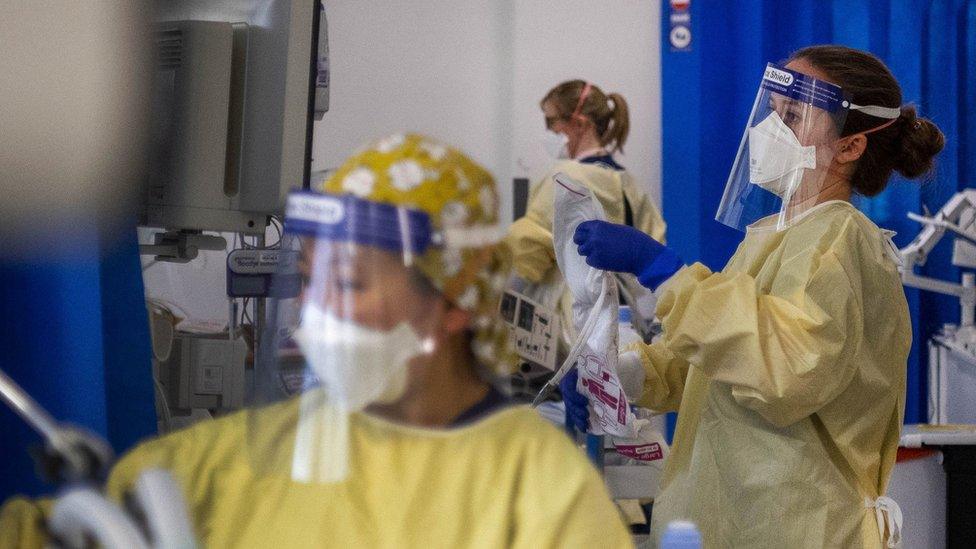
The timing and peak of a third wave depends on how and when restrictions are eased, a top doctor says
A third wave of coronavirus is "inevitable", according to one of Wales' top critical care doctors.
Dr Richard Pugh, chairman of the Welsh Intensive Care Society, external, said the timing and peak of the wave would depend on how and when restrictions were eased.
He said critical care staff were still stretched and the last thing they wanted was another surge in demand.
The Welsh Government said its approach was to "ease restrictions in gradual steps" when it was safe to do so.
Dr Pugh, who works at Glan Clwyd Hospital in Bodelwyddan, Denbighshire, called for lockdown easing to be "staged" and "informed by the data".
He added: "I think a third wave will inevitably come.
"As these measures get released it's the timing and the peak of that wave that we've got some potential to influence.
"When you look at critical care, the average age of people that come to critical care as a result of Covid is late-50s and these are people who are not going to be seeing the benefits of the vaccination programme that soon, so I am concerned about the potential of a third wave.
"From a professional point of view, the longer the measures stay in place, the feeling is that's going to reduce any further peak in demand."
First Minister Mark Drakeford previously said chief medical officer Frank Atherton had told him he believes a third wave was being "baked into what will happen during this year".
Dr Pugh's warning comes amid calls for more clarity from the Welsh Government ahead of the next lockdown review on 12 March.
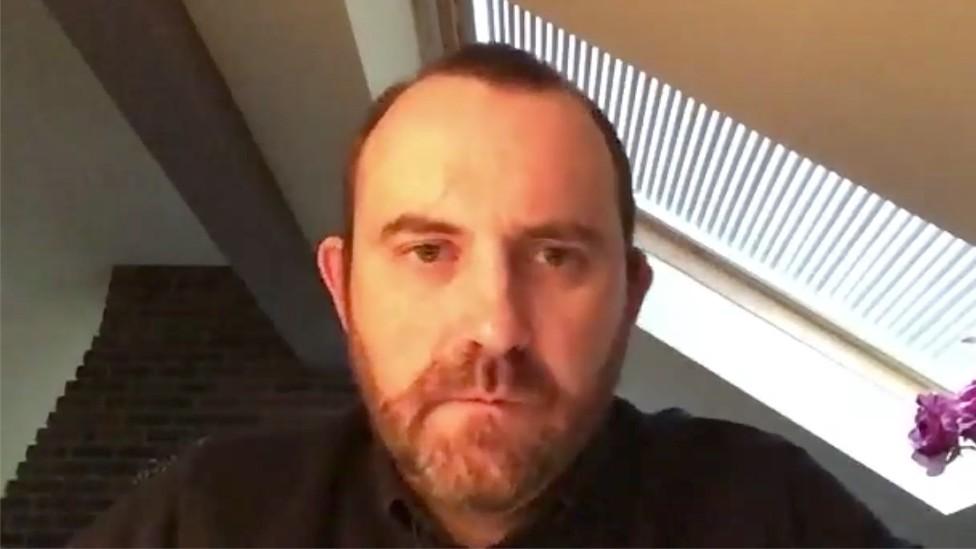
Dr Richard Pugh is chairman of the Welsh Intensive Care Society
On Monday, licenced venues were allowed to start holding wedding and civil partnership ceremonies.
Earlier, Education Minister Kirsty Williams said more pupils in Wales could be back in class before Easter after the youngest primary school pupils were allowed to return after half-term.
The next review is expected to consider whether more children can return to school, if non-essential retail can reopen and whether the stay-at-home rule - which has been in effect since before Christmas - will continue.
The possibility of opening self-contained accommodation before Easter will also be considered.
Meanwhile, the boss of a body representing police in north Wales said officers were entering a period of uncertainty and support from the Welsh Government had been "woeful".
"Police are damned either way - they're damned if they do, damned if they don't," said Mark Jones, general secretary of the North Wales Police Federation.
"If the police enforce, they're being accused of being heavy-handed and if they don't enforce they're accused of being too soft."
He said the Welsh Government needed to be "crystal clear" in its communication of what restrictions allowed in the future and called for partner agencies with enforcement powers to use them to support the police.
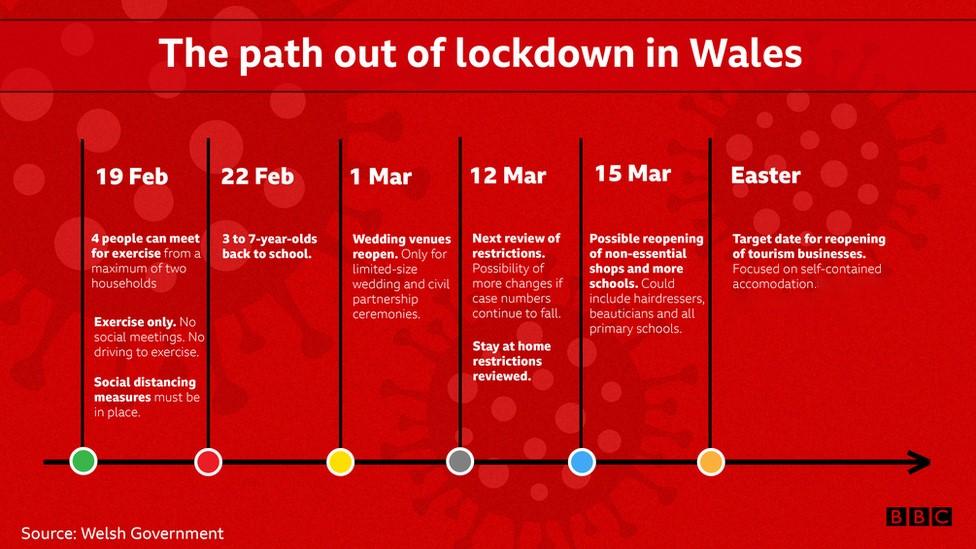
Dr Simon Williams, a senior lecturer at Swansea University who is studying public attitudes towards lockdown, said there had been "much confusion" about the rules, particularly when UK nations had taken differing approaches.
He also warned about so-called "alert fatigue" where people may "switch off" from changes to the rules when they happen frequently.
He said it would be better if the Welsh Government introduced "wholesale changes" less frequently and explained why these might be different to other UK countries.
Wales' case rate is now 60.3 per 100,000 people in the past seven days - its lowest level since 22 September.
A Welsh Government spokesman said: "The new variant strains of coronavirus, particularly the dominant Kent strain, add a new dimension to the pandemic, which means we must be cautious and careful.
"Our approach will be to ease restrictions in gradual steps, listening to the medical and scientific advice and assessing the impact of the changes as we go along.
"We will give as much notice to people and businesses as we can. When we believe that it's safe to ease restrictions, we will do so.
"We don't want to raise people's hopes and expectations and then disappoint them.
"The police have done a fantastic job enforcing the regulations, together with local authorities and trading standards officers. We thank them for their efforts throughout this pandemic."
Wales Live, BBC One Wales, 22:35 GMT, 3 March and on the iPlayer
- Published20 December 2020
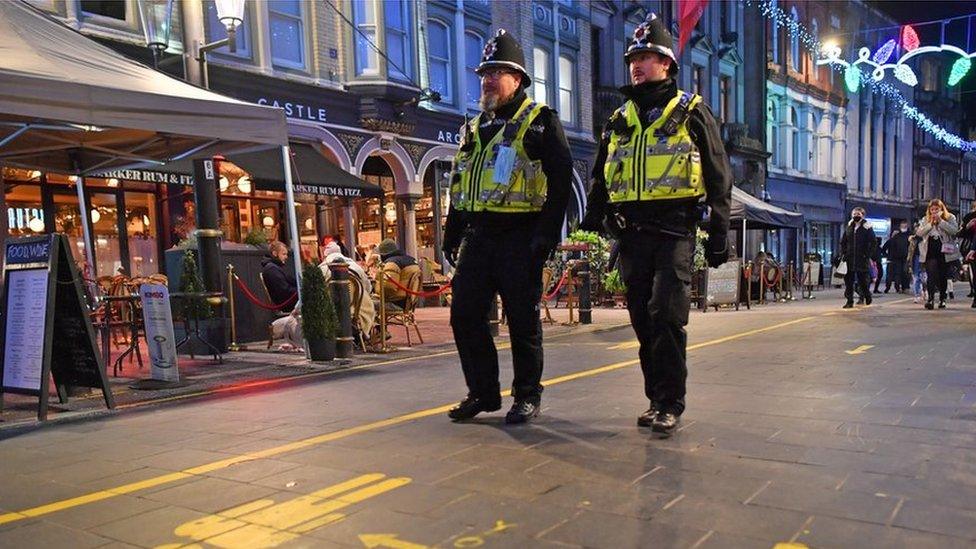
- Published28 May 2024

- Published28 February 2021
